#Saudi Abaya
Text
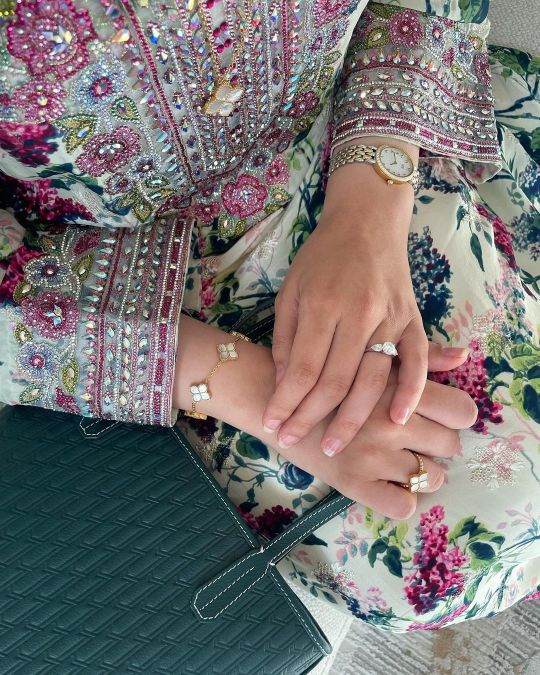
IG: eabdulkarem
#Fa#Fashion#Arab#Arabian#Dubai#Abu dhabi#UAE#Kuwait#Saudi#Khalijee#Women's style#Abaya#Luxury#Jewelry
70 notes
·
View notes
Text
How to Style Traditional Saudi Clothing for Modern Looks?
Traditional Saudi clothing, such as the Thobe, Abaya, and Hijab, has a rich cultural and religious value. However, with the increasing globalization and fusion of cultures, many people are looking for ways to style traditional Saudi clothing for modern looks.

Here are some tips on doing so while still respecting and honouring the cultural significance of these garments.
Mix and Match with Contemporary Pieces: Mixing and matching traditional Saudi clothing with contemporary pieces is one way to modernize it. For example, you can pair a thobe with a denim jacket or a leather belt or style an abaya with sneakers or ankle boots. This creates a unique and stylish look that blends traditional and modern elements.
Experiment with Colors and Patterns: While traditional Saudi clothing is often associated with neutral colours such as black, white, and beige, there is no reason why you can’t experiment with colours and patterns to create a modern look. Try pairing a brightly coloured hijab with a neutral thobe or abaya or layering different ways to make a bold statement.
Accessorize with Jewelry and Scarves: Accessorizing is a great way to add a personal touch to your traditional Saudi clothing and create a modern look. For example, add a statement necklace or earrings to your outfit or wrap a colourful scarf around your neck or head. This adds a pop of colour and texture to your outfit, making it more interesting.
Embrace Different Fabrics: Traditional Saudi clothing is often made of lightweight fabrics such as cotton or linen to keep the wearer cool in hot weather. However, you can experiment with different materials to create a more modern look. For example, you can wear a thobe made of silk or satin for a more luxurious look or pair an abaya with a leather or denim jacket to add a touch of edge.
Don't be Afraid to Customize: Feel free to customize your traditional Saudi clothing to create a modern look that reflects your style. For example, you can add embroidery or beading to a thobe or abaya to make it more unique or alter the length or shape of the garment to suit your body type.
In conclusion, styling traditional Saudi clothing for modern looks can be fun and creative while respecting these garments' cultural and religious significance. Mixing and matching with contemporary pieces, experimenting with colours and patterns, accessing jewellery and scarves, embracing different fabrics, and customizing your outfits will create a stylish and modern look that reflects your personality and individuality.
2 notes
·
View notes
Text
#saudi arabian gp 2024#saudi arabia gp#saudiarbia#saudi arabian grand prix#saudi arabien#abaya#abayafashion#luxury abaya#abayadubai#veiled#khimar#purdah#niqab#fully veiled#abaya dress
1 note
·
View note
Text

Chess Grandmaster Anna Muzychuk refuses to play in Saudi Arabia and says: "In a few days, I will lose two world titles, back to back." Because I decided not to go to Saudi Arabia. I refuse to play by special rules, to wear abaya, to be accompanied by a man so I can leave the hotel, so I don't feel like a second class person.
"I will follow my principles and not compete in the World Fast Chess and Blitz Championship where in just 5 days I could have won more money than dozens of other tournaments combined." This is all very nasty but the sad part is no one seems to care. Bitter feelings but can't go back. "
—Anna Muzychuk
WOW
325 notes
·
View notes
Photo
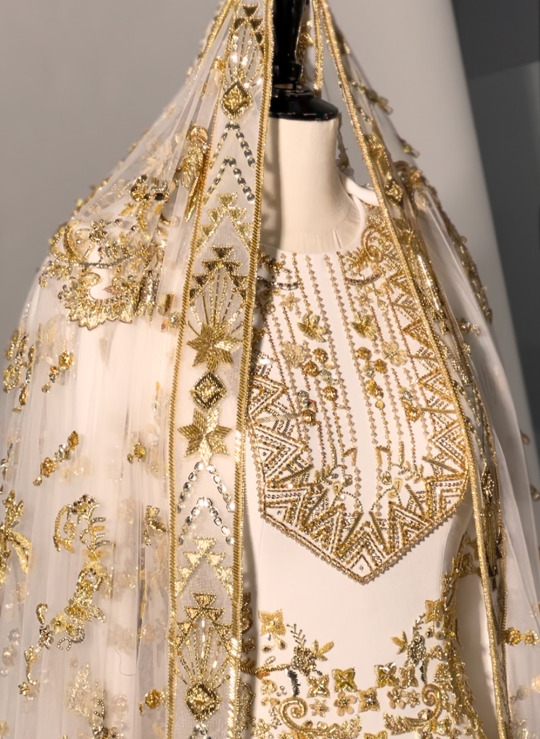
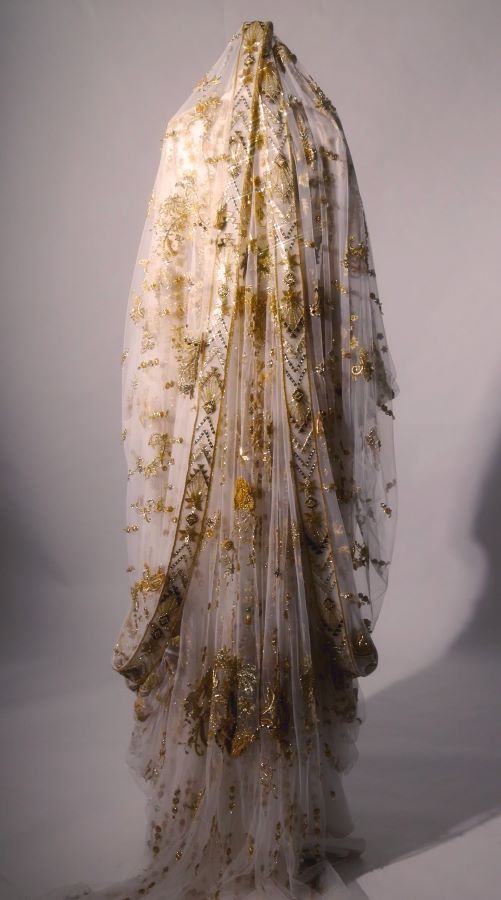
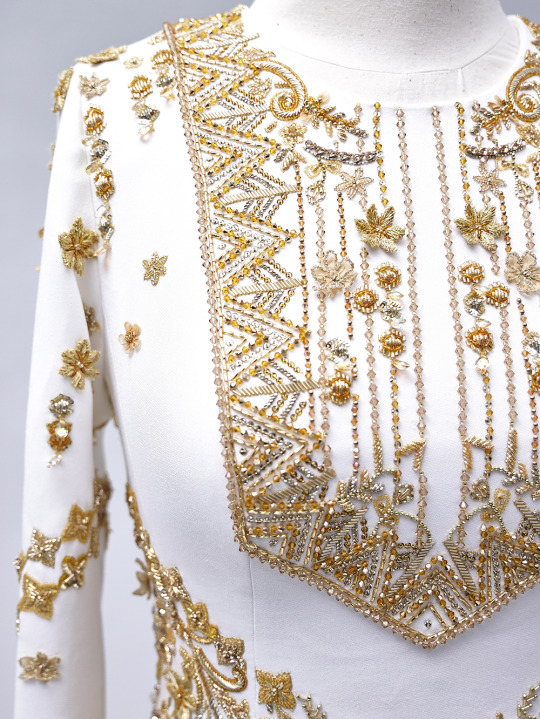
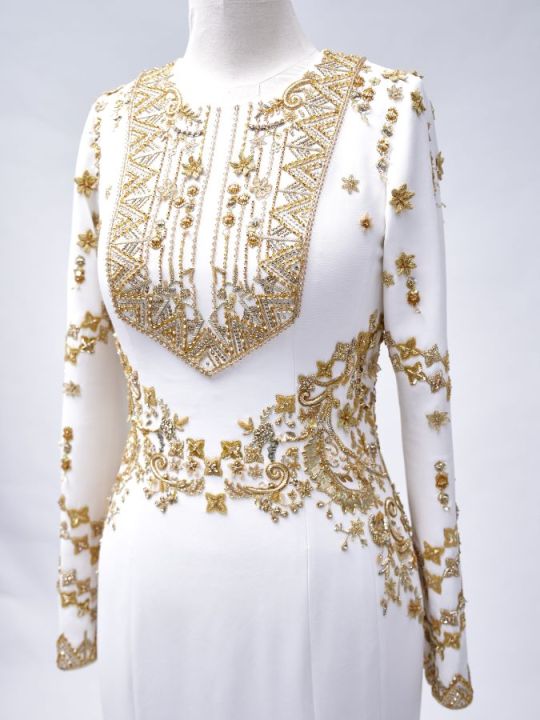
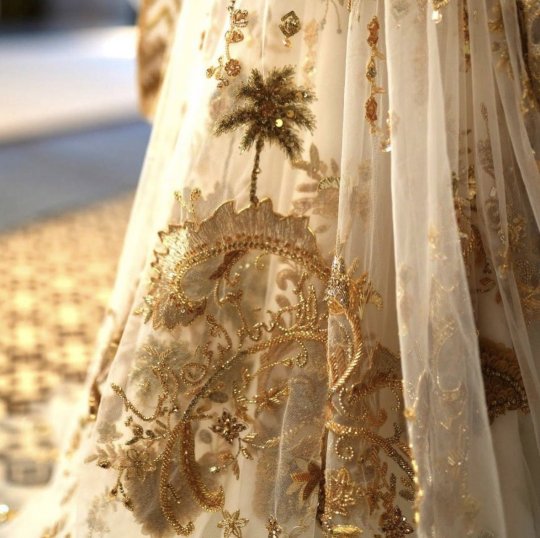
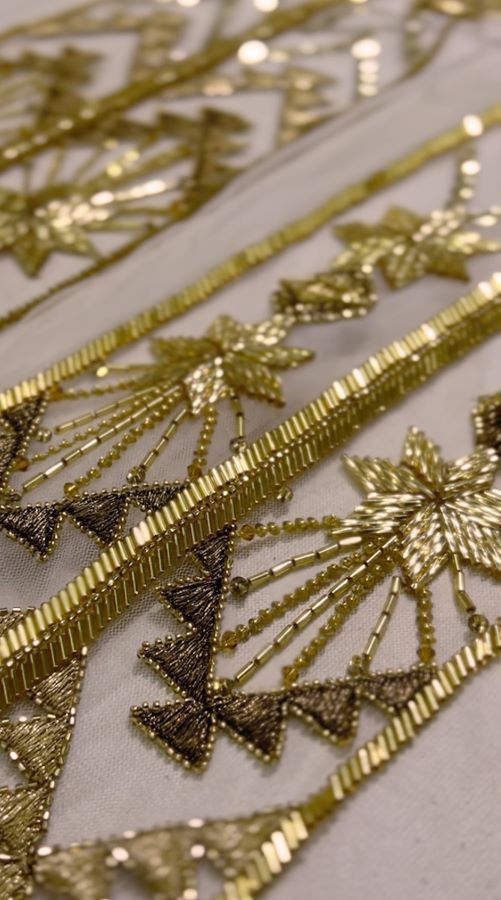
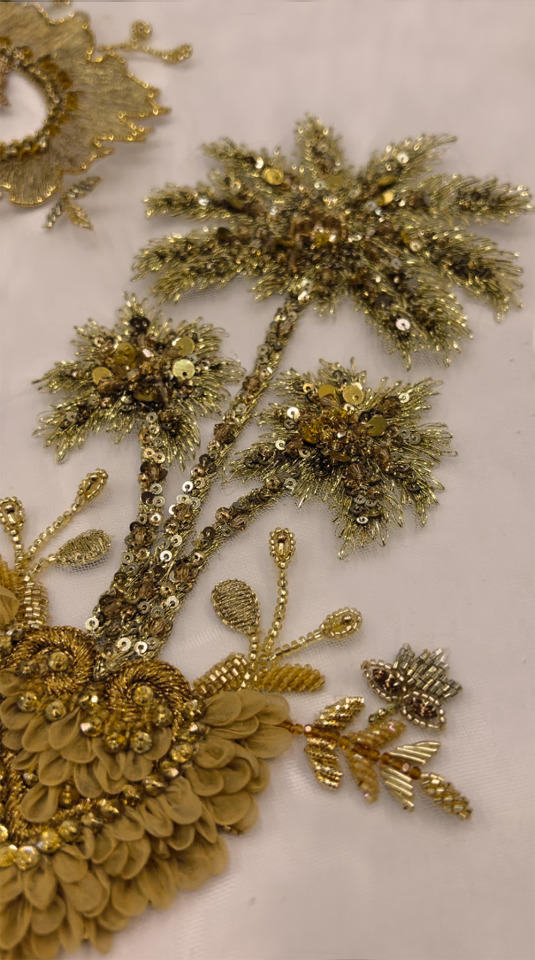

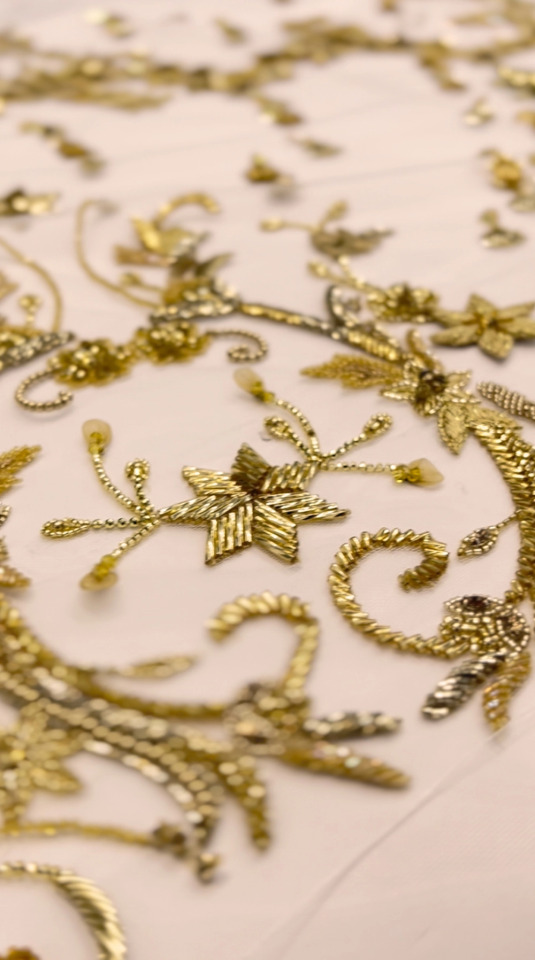
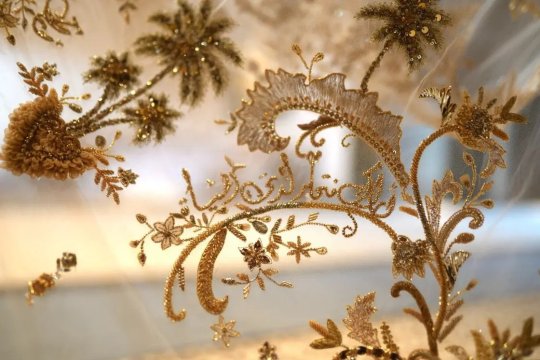
Close-up of Rajwa Al Saif's henna party outfit on 22 May 2023. The dress, by Saudi designer Honayda Serafi, took more than 2,000 hours to create, and includes several hidden messages of love, Vogue Arabia reports.
“Crafted by Saudi designer Honayda Serafi, Al-Saif’s henna dress is a vision in white and gold. The future queen of Jordan celebrated with family and friends in a look that takes inspiration from the traditional Najdi dress, known as Sahabi thoub, which originates from the Najd region of the Kingdom of Saudi Arabia. Keeping in mind the occasion and the family, Serafi made sure to combine the cultural beauty of the Hashemite kingdom of Jordan and the Kingdom of Saudi Arabia to celebrate the union of Rajwa and Prince Hussein beautifully.
Featuring a handcrafted veil and dress, Rajwa Al-Saif’s pristine white henna outfit comes doused in 3D ornaments, made using a mix of silk, metallic threads and traditional reed strings (a signature element of Najdi embroidery). To create this masterpiece, Honayda Serafi took cues from the bride’s personality, attempting to reflect her innate grace, the rich traditions of her land, and her contemporary spirit.
Look closely, and you’ll notice that Al-Saif’s gown is replete with lovingly made details. Featuring a high round neck and full sleeves, the crepe gown features an inverted triangle-shaped bodice that is inspired by the traditional Najdi bodice design, normally worn as a separate piece. As the body-skimming gown continues, it flares out towards the ankles to create a mermaid-esque shape. The bodice of the gown is elevated using embroidery: soft organza flowers share space with geometric shapes and Arabic motifs, all of which are typical to Saudi Arabia and reflect the beauty and traditions of the bride’s homeland.
Rajwa Al-Saif’s veil has also been embroidered with meaningful designs, making this piece so personal to her journey. Seven Jordanian stars adorn her veil to signify the seven-pointed star that sits proudly on the Jordanian flag. What makes this symbol even more special is its religious meaning: The star on the Jordan flag signifies the seven verses in the opening chapter of the Holy Qur’an, and the seven mountains of Amman.
Along with the stars, the veil also features intricate palm trees as a reference to Saudi Arabia, and even some poetry. The words “I see you, and life becomes more beautiful” have been embroidered into Al-Saif’s veil, from Tunisian poet Abu al-Qasim al-Shabi, known for his Andalusian notes. If you’re a fan of Rajwa Al-Saif’s elegant wardrobe, you may already know that the bride-to-be has a soft spot for special symbols when it comes to her clothing. Back in August 2022, when Rajwa was officially engaged to Prince Hussein, she also commemorated the occasion with her clothing—an abaya that was embroidered with two gold birds, symbolizing two souls in love.”
The veil took 760 hours to complete
An exquisite piece of couture requires hours of effort, and Rajwa Al-Saif’s henna outfit is no different. According to the designer, Al-Saif’s veil took 760 hours to complete, and was worked on by a team of experts, craftsman and women. Extending to 10 meters, the piece was made using handcrafted tulle, a process that normally takes close to 2,000 hours of work. As for her billowing gown, the creation is the result of 340 hours of work.
Honayda Serafi: “I am very proud and honored to be part of this historic union”
Speaking on the occasion, Serafi shared, “I am very proud and honored to be part of this historic union between His Royal Highness, Crown Prince Al Hussein bin Abdullah II of the honorable Hashemite family, and Miss Rajwa Khalid Alseif. May they be blessed with happiness and their union be crowned with success.” (x)
801 notes
·
View notes
Text

Chess Grandmaster Anna Muzychuk, on refusing to play in Saudi Arabia.
We should all be more like Anna.
'In a few days, I'll lose two world titles, one after another. Because I decided not to go to Saudi Arabia. I refuse to play by special rules, wear abaya, be accompanied by a man so I can get out of the hotel, so I don't feel like a second-class person.
'I will follow my principles and not compete in the fast chess and blitz world championship where in just 5 days I could have made more money than with dozens of other combined tournaments. This is all very unpleasant but the sad part is that no one seems to care. Bitter feelings, but I can't go back.'
Anna Muzychuk
339 notes
·
View notes
Text
Boyah
Boyah (plural: Boyat) was subcultural identity of AFAB non-binary,tomboy,demi girl & trans-masculine folks of Persian Gulf. Boyat are asigned female at birth,but express gender atypical behaviour. The origin of this queer subculture is unclear, some boyat claimed that it was started through online forums & groups. [citation needed]
Boyah subculture was more visible in Gulf states (including Kuwait,Oman,Saudi Arabia,UAE,Bahrain). Boyah identity may fall under the modern Transgender and Non-binary umbrella. However some people may considered them as people of forth gender.
Sexuality
Boyat folk's sexuality can be confusing in various cultural contexts. Most of the Boyat had intimate and romantic relationships with cis-girls in their past life, but they do not consider themselves as homosexual.
The term Boyah itself does not mean lesbian in arabic.In later life many Boyat had to pursue a heterosexual marriage & had children.Because marriage is a obligatory in local arabic customs.In addition to this, some boyah were androsexual & interested in boys only.
Culture & Lifestyle
Trans-masculine/tomboys/AFAB non-binary/AFAB genderpunk took the “Boyah” cultural identity in their early adolescence. On the otherhand, some boyat took the male role to challenge societal gender norms and stereotypes in Arabic Gulf States.
In general, a boyah is characterized by no make-up, no feminine expressions, no feminine name,feminine pronouns.In boyah subculture, Boyat community may use a massive masculine watches.Boyat people worn loose-fitting male cloth with a touch of the military, vibrantly coloured dresses,shirts and boyah jeans(which are baggy with big prints all over them). Since the age of internet Arab's boyat community started informal groups,online forums.
Most of the boyat have to lead double lives because gulf states has strict cultural gender roles especially for womxn.Many of them are forced to get married.In general Boyah phenomena is considered a disgrace to an arab family's honour.Additionally atypical gender expression is seems to be indecent and deviant in GCC states.Many boyat face stigma for not adhering with rigid patriarchal gender roles.
After leaving home, many undergo a radical transformation,changing their clothes at school/college or a friend's house.While in transition ,they run no real risk of being caught because,while in public, Emirates women are required to wear the national dress - a long black over-garment called an abaya, which makes it easier to switch roles without drawing attention.
Media
In general, Gulf media portrays queerness in negetive ways. A Boyah named Abeer appeared on the Saudi TV Show “Ya Hala” where he/ze said that he/ze was attracted to women while still at school. He/Ze had a complete love relationship with a classmate for a long time. Another person named Hamood joined a show of Radio Sawa where he/ze explained ze was rebelling against social (gender) norms and his/zee family’s restrictions through this boyah phenomena.
On a national television of UAE, a boyah named Bandar openly spoke about his queer relationship with another girl and expressed the desire to marry her and have children with her through IVF. His statement on Abu Dhabi's national television shocked the whole nation.
Decline of Boyah Culture
In the Persian Gulf region, boyah identity became very controversial since 2007. In 2007, the Kuwaiti parliament amended Article 198 of the country’s penal code so that anyone “imitating the opposite sex in any way” could face up to a year in jail and/or a fine of 1,000 dinars ($3,500). A further problem was that the law made no attempt to define “imitating the opposite sex” So it was basically left to the discretion of the police. Within a couple of weeks at least 14 people had been arrested in Kuwait City & thrown into prison. Boyat made their debut as a public concern in 2008 when Dubai police denounced cross-dressing - its chief, Dahi Khalfan Tamim, called on the Ministry of Social Affairs to find out how widespread the practice is and what causes it.
In 2009, Dubai launched a public campaign under the slogan "Excuse Me, I am a Girl", which cautioned against “masculine” behaviour among AFAB queers & tomboys and aimed to steer them towards "femininity". The impetus for this was a moral panic which swept through several Gulf states at that time, regarding the Boyah phenomena. 2 months after announcing the campaign the police persecuted 40 people (for their gender atypical expression), imprisoned them for 3 years in jail.In addition, trans-masculine/trans males,trans women,gender-queers were also shamed & abused by the UAE's police team.
Public Attitudes
Many conservative patriarchal arab people see a greater danger in the Boyah subcultural practices; they fear it can become permanent and cause great distress for the women and their families.
Psychiatrist Yousef Abou Allaban says, "It can go extreme, where they change their sex and have an operation.'' Saudi journalist Yousef Al-Qafari said in an interview on Radio Sawa that family disintegration and lack of true love have led women to act like a man. Al-Qafari said education was the best way to tackle this phenomenon.He called on the Ministry of Education to take up this role.
Social worker Nadia Naseer said, “Families play an essential role in such cases. Families should monitor their female members, especially when they start acting like men by cutting their hair short, wearing men’s clothing, or refusing to wear women’s accessories”. She also said, when a girl or woman does this,she is looking for attention & sending a message that she is a boyah.
Saudi writer Randa Alsheikh, in one of her columns, said that she attended a social gathering where she saw a group of females who appeared almost completely like men.“I would not be exaggerating if I say I could not tell the difference between them and men,” she wrote.She said that they looked, talked and walked like men & “even worse” some appeared to be in their 40s. We need to quickly address this phenomenon to contain these girls so that they are able to build good families and a healthy society,”
#Boyah#Booyah#Boyat#arabic#GCC#Persian Gulf#queer#trans masculine#genderqueer#gender variance#AFAB#Middle Eastern#queer culture#cultural gender identity
254 notes
·
View notes
Text
Can’t believe I have to say this but if you wanna make a female aphmau character Muslim and make her wear a hijab/abaya please do it properly, don’t be like other artists who make a character wear a hijab then make them show off their bodies and make them wear immodest clothing. It’s extremely offensive to Muslims and the religion itself, also offensive to Arabs and Middle Easterners. What’s the point of wearing a hijab if you’re not being modest? THINK SMARTY THINK!
You can’t draw her with a hijab then with her in a crop top and showing off her legs fuckass
(Also kinda unrelated but we need more Middle Eastern representation over here give me Syrian, Turkish, Saudi, Kurdish, Iraqi, etc.. characters)
#I’m middle eastern and I see women wearing hijabs everyday don’t even try arguing with me fuckass#It’s amazing to see Muslim rep in fandoms but DO IT CORRECTLY#aphblr#Aphmau#Fandoms
35 notes
·
View notes
Text

Wallah If ONE single muslim sister remains in the jails, death is better for us than life, our sisters are being jailed everywhere not just in the jails of Syria and Iraq… The US, the United Kingdom,Iran, Saudi Arabia, France, Belgium,Sweden ,Germany, Egypt, the Netherlands…. All of them and even more have many of our dear Muwahhidaat under their mercy, the problem is much bigger than many think it is… Imagine being observed by male Kuffar all day long, wearing your abaya gloves and niqab to do everything, even to sleep! You sisters especially know how hard it is to spend ONE hour in niqab in a closed place, imagine never taking it off… Imagine being far from your dear ones, be it your children or Husband or your siblings and parents imagine not being there for them, and not even knowing in which state they are, imagine being physically and emotionally tortured everyday, those who preach “human rights” forget everything they preach when they enter upon pure muwwahhidaat… Imagine never knowing what to expect, being mocked all day long by someone who has no value in dunyah and akhirah, isn’t this humbling and humiliating? And the worst of this All, is the feeling of betrayal, hearing that your Ummah is formed by more than 1 billion people, yet never finding one single person who will actually stand for you, instead they neglect you, and many of them even slander you…
Oh Allah you know what is within our hearts, and that our hands cannot yet make it happen, so grant us according to our intentions and raise generations of men who will free our precious sisters.
15 notes
·
View notes
Text

Sims Around the World #26 - Saudi Arabia
CC links under the cut!
Abaya
Niqab
Eyeliner
#my sims#simblr#sims 4#sims 4 cc#sims 4 screenshots#the sims#the sims 4#the sims community#sims#sims 4 gameplay#saudi arabia#saudi#niqabi
10 notes
·
View notes
Note
Hey! Love your posts, and I hope this isn't too intrusive of a question.
I'm not Muslim, and have no heritage based in the Middle East. However, I'm really drawn to things like the hijab, abayas, and other modest clothing. I've always thought they were beautiful, and they look really comfortable.
Would it be cultural appropriation, or downright inappropriate, for someone like me to try wearing these clothes someday? The last thing I want to do is disrespect anyone's culture.
Salam! 👋🏽 Thank you for the question, I appreciate that you put in the effort to be respectful. I'm always happy to answer anyone's questions.
Put simply, no, there isn't an issue here at all, infact Saudis would love to see the appreciation, would prefer it from visitors and try to sell clothes as a novelty to tourists. The style of clothes has existed for a long time across many people's of the region with small variations so its fair to say they are simply practical designs for living in the desert, and it's known that the practice of veiling the face was originally a Greek influence on us.
The only thing I would avoid are specific patterns associated with tribes but those sorts of traditional wear are increasingly rare these days anyways.
If you want, there are no shortage of online clothing retailers from Saudi and other countries that ship internationally, feel free to message me if you want suggestions. :)
7 notes
·
View notes
Text
I keep meaning to make this meta post and then executive dysfunctioning my way out of it because it feels too big. So let's just start and see where it goes. I can always reblog it with additions later.
Khalila is an interesting Muslim to me, because she's not a stereotype. She's devout, and fierce about it, but she seems to choose which hadith she follows. (More on this in a sec)
I like to interpret this as a deliberate, highly reasoned-out decision but partially a reaction to what is either her upbringing, or the influence of certain family members. To explain my thoughts:
She's from Riyadh, which as we may remember from her hilarious put-down to Dario being racist/Orientalist/anti-Arab, whatever your buzzword is, is a modern, technologically developed city. This indicates certain things about history, which are backed up by the later discovery that the country name is still Saudi Arabia. So its history has been very close to that of our own, which in an absolutely tiny nutshell means that it was unified in 1932 by a member of the Al Saud family. The family had long been in alliance with the Wahhabi/Salafi movement, a reactionary movement largely against European colonialism/imposition of values, which leant hard into things like perfect adherence to the hadiths judged authentic and forbidding reasoning/logic being applied to which of these should be followed.
This is how we got to Saudi Arabia pre about 2017, with its incredibly powerful religious police, separation of men and women, women can't drive/travel anywhere alone/wear anything other than (black) abayas&niqabs or even burkas, stoning, etc etc.
Now, I don't know about you but when I first came across this information, my brain went straight to one particular scene: Khalila's Ink and Bone introduction.
In it, Khalila is being vigorously chaperoned by her uncle, Nasir:
"...when a man moved over to take a seat next to her. He was a rounded fellow, older, expensively dressed in traditional Arab robes ...The uncle gave Jess a warm smile, rose, and gave him a bow in return. It was all very civil, but he wasn't leaving the girl's side, that much was obvious ... the departure of Khalila's uncle. He clearly didn't like leaving his girl to the unwashed masses, but he went with good grace."
(This is also, through sheer elimination, probably the uncle who was a Library inventory for 30 years who she apprentices with, mentioned in S&I)
Khalila is not only chaperoned (the only one to be so) but is wearing a black hijab. Jess not mentioning any other colour makes me convinced that Khalila is actually wearing all black here. I think that she is doing this against her will, as in the entire series we never see her wearing black again after this (apart from adopting the explicitly English mourning custom for Morgan).
Adding this comment that Khalila makes about her uncle -
"Rough company," said Dario. "Unsuitable for an innocent flower like you."
"You sound like my uncle. One can be innocent and not be ignorant, after all."
-- and I am claiming that at the very least, Khalila's uncle is a Salafi Muslim. I dither over whether the rest of Khalila's family is the same, since there's no evidence either way. Given that in our real life history, there has been a huge loosening of restrictions in Saudi Arabia from about 2017, I like the idea that her family in general are more progressive/lenient/different school of thought, and it's just Nasir who is a strict Salafi still. (Poor guy having fucking Rafa for a son.)
Other things that Khalila very quickly goes against that are mentioned or inferred here: being alone with unrelated men and touching the opposite gender. (Having a Christian boyfriend, even chastely, is ... that's a big can of cultural worms lol I'm talking about her being alone with, for example, Jess, and also freely doling out hugs and other physical affection). Hadiths and customs that Khalila does still adhere in the series to include the five prayers, wearing hijab, and calling both tattoos and alcohol haram.)
Anyway. I forgot my point. Basically, freed from the restrictions of her uncle and a religious movement that she clearly does not agree with, Khalila chooses her own way to be a devout and proud independent Muslim woman. Idk. I just love her.
15 notes
·
View notes
Text
Being in Saudi Arabia is honestly so bad for my mental health. Dry ass air, boring ass town, fuck all to do, and having to wear fucking abayas whenever I so much as glance at a door is so goddamn annoying. I don’t know if I can take 3 months of this bullshit.
13 notes
·
View notes
Text
Urgent Action: SAUDI WOMAN IMPRISONED FOR WOMEN’S RIGHTS TWEETS (Saudi Arabia 14.24)
On November 16, 2022, Saudi authorities arrested 29-year-old Manahel al-Otaibi. She has been forcibly disappeared since November 2023. She was charged with violating the AntiCyber Crime Law due to her tweets in support of women’s rights as well as posting photos of herself at the mall without an abaya (a traditional loose-fitting long-sleeved robe) on Snapchat. Her case has been referred from the Criminal Court in Riyadh to the Specialized Criminal Court (SCC), set up to try terrorism-related crimes. The SCC is notorious for carrying out grossly unfair trials and handing out harsh sentences, including the death penalty, for individuals peacefully expressing themselves online. Saudi authorities must immediately and unconditionally release Manahel al-Otaibi and drop the charges against her.
TAKE ACTION:
Write a letter in your own words or using the sample below as a guide to one or both government officials listed. You can also email, fax, call or Tweet them.
Click here to let us know the actions you took on Urgent Action 14.24. It’s important to report because we share the total number with the officials we are trying to persuade and the people we are trying to help.
6 notes
·
View notes
Text

Chess Grandmaster Anna Muzychuk, on refusing to play in Saudi Arabia.
'In a few days, I'll lose two world titles, one after another. Because I decided not to go to Saudi Arabia. I refuse to play by special rules, wear abaya, be accompanied by a man so I can get out of the hotel, so I don't feel like a second-class person.
'I will follow my principles and not compete in the fast chess and blitz world championship where in just 5 days I could have made more money than with dozens of other combined tournaments. This is all very unpleasant but the sad part is that no one seems to care. Bitter feelings, but I can't go back.'
Anna Muzychuk
17 notes
·
View notes
Text
Yandere Saudi Arabia headcanons
Warning: I don't know jack shit about Islam so sorry if a portrayal is wrong
Affection: You would expect him to be distant but actually he's not, he's very touchy to the point of you're annoyance but he's just greatful that your his dear wife.
Blood: no no, he'd rather hire someone than do it himself or woo you with his wealth.
Cruelty: he'd be sososo sweet to you, when he finds someone to love he'd never let go.
Darling: You're gonna be covered, he doesn't care hijab and abaya and you are not to speak, unless he cannot speak for you and oh yeah you're having a family you can't say no to that all.
Exposed: he'd bare it all to her but he is a dangerpus man to be feared but overall he's very sweet and kind.
Fight: it's more likley that'd you disobey him rather than fight him, he'd be mad like Germany he's strict and isolation is his way of keeping you behaved.
Game: no no no this is not a game at all he's very very serious.
Hell: Either the isolation or the process of starting a family either will be hell.
Ideals: A well behaved silent Darling who will take care of his children, that'll be the only thing Shell have to worry about.
Jealousy: Yes yes, the jealousy of this man is scary to the point of only wanting him to hear her voice and see her luscious hair.
Kisses: He's so sweet to you cuddles holding hands 24/7 he'd love love to take you to the mall you're be forever tresured in his heart.
Love letters: He'd do anything spoil you give you all you could desire he'd buy you food choclate he'd give uou money, he loves and cherishes you.
Mask: Well to a point yes, you will not be free not allowed to talk and be covered from head to toe, but you'll still be spoiled and treated like a princess.
Naughty: Isolation, thats all I have to say
Oppression: The right to choose how to dress the way you'd like. The right to talk only he can hear you're dear voice
Patience: He will be patient but there's a limit and he can get scary if pushed.
Quit: He'd never recover, I once saw a call in radio that took place in one of the Arab nations and it was a man who remembered the years, months, days he even knew hours and seconds after his wife died, he looks like he's fine but you left and took his heart and soul with yourself.
Regret: No, he knows that Allah made you come into his life and he was blessed and he needs to take that chance with love.
Stigma: Islam is instilled into his brain to the point where he can not touch a woman without feeling like he sinned, Islam also wanted you to be him and him only.
Tears: yes yes it's most likley that your living a extremely sinful life and he has to save youd.
Unique: idk
Vice: His gift giving, he's easy to trick but his brothers know and will let him know
Wit’s end: Physically no no, mentally yes, if he can isolate his own daughter to the point of severe mental break he can make you have the same fate.
Xoanon: He's a rich man, he'll buy you anything spoil you dance with you all of that
Yearn: girl idk
Zenith: Yes you will be broken to a point
I'm so sorry for the shitty work I'll do actual productive stuff soon I promise
18 notes
·
View notes